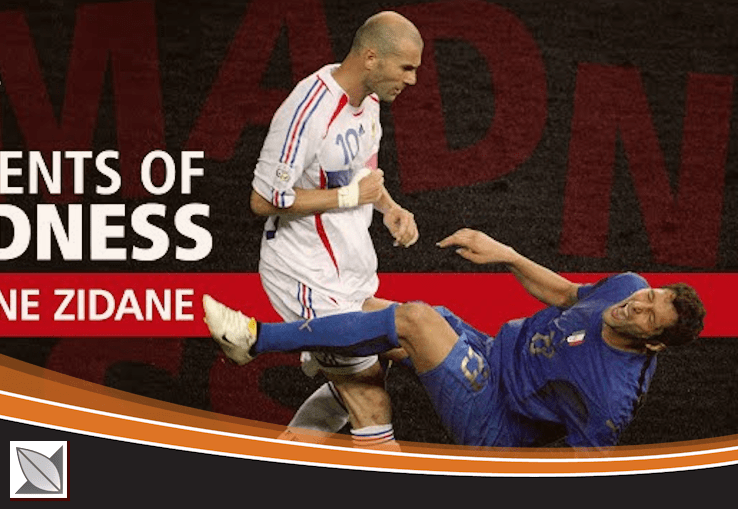A Moment of Madness: Zidane Headbutt in the 2006 World Cup Final

The 2006 FIFA World Cup, hosted by Germany, was a festival of football, filled with drama, upsets, and moments of sheer brilliance. Yet, amidst all the sporting prowess, it was a moment of uncharacteristic aggression from a footballing maestro, Zinedine Zidane, that would go down in history as one of the tournament's most iconic moments.
The Build-up to the Final
As the French team journeyed towards the final, Zidane, already a legend in the footballing world, emerged as their guiding light. Playing in what was to be his final professional match, expectations were high for a fitting farewell. The French maestro had dazzled fans throughout the tournament, with his elegant playmaking and leadership driving Les Bleus to the brink of glory once more.
The Final
On July 9, 2006, the Olympic Stadium in Berlin played host to the World Cup final between France and Italy. The match began perfectly for Zidane, as he opened the scoring with a cheeky panenka penalty. However, as the game progressed and tensions heightened, what unfolded in extra time shocked the world.
The Incident
In the 110th minute, with the score level at 1-1 and penalties looming, a seemingly innocuous exchange between Zidane and Italian defender Marco Materazzi escalated rapidly. In a moment of sheer disbelief, Zidane, after a few words were exchanged, headbutted Materazzi in the chest, sending the Italian crashing to the ground.
The Aftermath
The stadium, players, and millions watching around the world were left in shock. Referee Horacio Elizondo, after consulting with his assistants, showed Zidane a red card, prematurely ending the illustrious career of one of football's greatest players. Without their talisman, France subsequently lost the final in a penalty shootout. The image of Zidane, walking past the World Cup trophy to enter the dressing room, became an enduring symbol of the night.
Materazzi's Revelation
The question on everyone's lips was: What did Materazzi say? In interviews following the incident, the Italian defender admitted to exchanging words with Zidane, including insults related to his sister. However, Materazzi maintained that his comments were typical on-pitch trash talk and nothing exceptionally derogatory.
Zidane's Response
Days after the final, Zidane spoke publicly, apologizing to fans, children, and educators for his behavior but stopped short of apologizing to Materazzi. While he regretted his actions, Zidane stated he'd rather die than apologize to the Italian, emphasizing the gravity of the insults he received.
The Impact on Zidane's Legacy
Zidane's illustrious career, decorated with World Cup and European Championship victories, as well as numerous club accolades, assured his place in the pantheon of footballing greats. While the headbutt became an indelible part of his narrative, it didn't overshadow his footballing prowess. If anything, it added a layer of humanity, showing that even the greatest are susceptible to moments of frailty.
Reflections and Legacy
The 2006 World Cup final remains one of the most discussed games in football history, primarily because of Zidane's unexpected act. The incident has been dissected, analyzed, and interpreted in countless ways, from being seen as a tragic flaw in a great athlete to a profound statement on honor and respect. It has been immortalized in art, literature, and media, showcasing the cultural impact of that fateful moment.
Conclusion
The 2006 World Cup final had all the makings of a fairy tale ending for Zinedine Zidane. Yet, in a split second, the narrative changed, reminding the world of the raw emotions and intense pressures of the beautiful game. While the headbutt will forever remain a talking point, it's essential to remember the entirety of Zidane's contribution to football. For beyond that moment of madness lies a legacy of unmatched elegance, skill, and passion for the sport.